Few people take this route, but it is here that visitors will find one of Türkiye's few restaurants, where the menu - closely tied to the natural environment - is unlike any other in a country renowned for its delicious food, according to CNN.
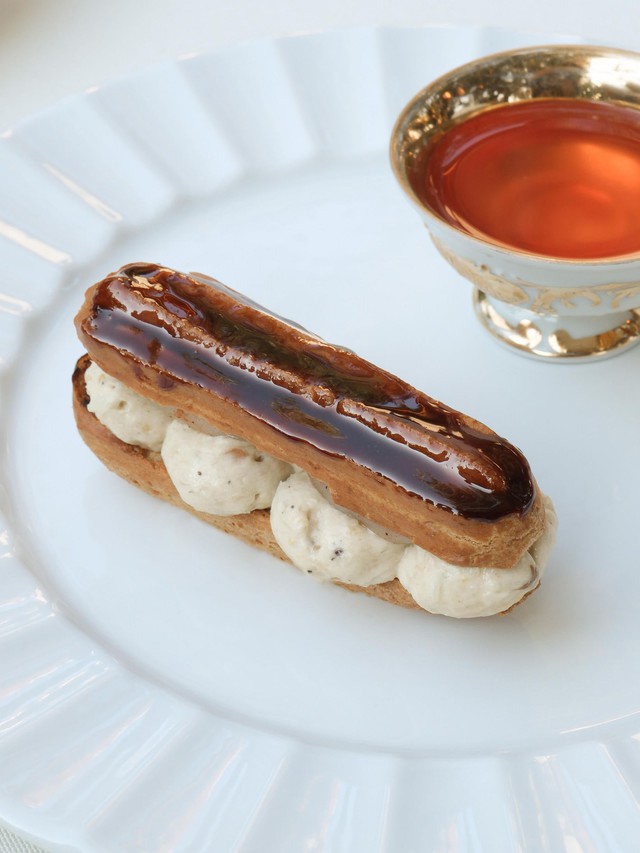
The highlight of the menu is the savory eclair. Photo: Courtesy Çiy Restaurant & Konukevi
Çiy Restaurant, founded by chef Damla Uğurtaş, overlooks the lush valley and the Aegean Sea from its outdoor terrace, where tables are shaded by large olive trees.
For Ms. Uğurtaş, who hails from the western Turkish coastal city of Izmir, about 60 miles (100 kilometers) north of the restaurant, it was the remote location that launched her into her own culinary world .
“Since the founding of Çiy restaurant, I have always dreamed that this destination would be located in a village with Aegean characteristics, where we can feel the spirit of the trees and the sea,” Uğurtaş shared.
After graduating from MSA, a highly regarded culinary arts academy in Istanbul, Ms. Uğurtaş became head chef at 7Bilgeler restaurant, a popular vineyard in the nearby village of Gökçealan.
However, determined to open her own restaurant, she developed the project and painstakingly renovated traditional buildings in the little-known village of Caferli into her own innovative dining establishment.
Love for nature
From the main entrance, the restaurant looks like a "village within a village". The natural stone structure and walkways are set among herb gardens and courtyards overlooking the vast valley.
The main building – which includes a restaurant on the ground floor and three rooms upstairs – is newly built, while the three on-site guesthouses are refurbished village houses.
Every detail of the interior design has been carefully chosen, from the antique furniture and traditional rugs in each room to the tiny lace coasters on the tables. The restaurant itself is unusual for this obscure village. It is a culinary masterpiece with a tasting menu shaped by the chef’s imagination as well as the local ingredients.
“The Çiy restaurant represents a style that is oriented towards love for nature. I like cauliflower that can withstand the cold in winter. I often tell the producers I work with that I will only like beautiful, non-toxic and high-yielding crops on the land,” said Ms. Uğurtaş.
“Instead of expecting farmers to produce ingredients they are not familiar with, I ask for the best and least intervention from the crops they know and have produced. So I make them do the work while I do my work. The land here is fertile and the yield makes me happy,” she said.
When the dishes are served, they all aim for simplicity, bringing the flavors of nature to the fullest, but also require high technique and experimentation, helping to bring memorable flavors to diners.
“I never imagined Çiy as a city restaurant, which is why I always felt like I came to the right place. Easy access to ingredients and producers is the restaurant’s biggest advantage, and since our priority is taste, this is the most outstanding feature,” she says.
The savoury éclair, which features prawn shell powder inside a pastry, is filled with prawn cream and comes with a glass of peach kombucha. Or the house-made pasta, topped with veal ragout or made from ancient grains like Kızılca wheat and served with thinly sliced squid in an egg yolk sauce, with Tulum Bergama cheese. All offer their own take on the restaurant.
The dishes will be paired with wines.
Alternatively, the more casual lunch service at Çiy restaurant varies depending on the day. On Sundays, there's brunch with towers of croquembouche filled with cream and gilded with caramel strands.
On Saturdays, the Çiy restaurant burger takes center stage with homemade pickles, ketchup, peach mustard and buttered bread.
And on Wednesdays, Uğurtaş and her team make a signature sourdough pizza.
Food for the soul
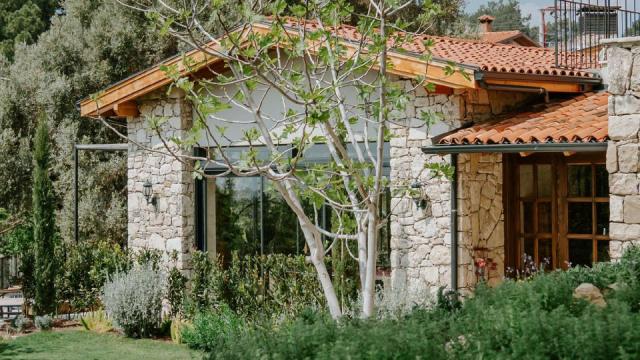
Çiy Restaurant is located in the countryside above the city of Kuşadası on Türkiye's west coast. Photo: Çiy Restaurant & Konukevi
Defining dishes as “healing Mediterranean cuisine,” Uğurtaş’s restaurant is part of a growing new culinary movement in Türkiye that focuses on not only satisfying the palate but also healing the soul.
Demands are changing, and recently, chefs are leaving the cities in Türkiye to open restaurants in remote areas to take advantage of the country's natural beauty, diverse cultures and rich ingredients in different regions.
Adnan Kaya, a columnist for the Hürriyet newspaper focusing on Aegean culture, says Damla Uğurtaş’s restaurant is breaking new ground in cuisine in an unusual location. This trend seems to be the new philosophy in Turkish cuisine, and Çiy will be one of the pioneers.
As time goes by, we realize that the planet may not be able to meet everyone’s needs and this is where Mrs. Uğurtaş comes in with healing food. She creates her own dishes without rushing, with real regional, seasonal ingredients and every member of her staff is integral to this, all of them bringing their own unique contribution.
Visitors to Çiy restaurant will be immersed in serenity, far from the hustle and bustle of Türkiye's mega-city of Istanbul.
The restaurant sits quietly in a remote village, the soft chatter on the terrace, the surrounding valley vast but silent. A cold signature cocktail is served at the bar. Guests are offered the restaurant’s own scented mosquito repellent made from local herbs.
It's a striking sight that makes one think of the small but significant revolution taking place in Turkish cuisine. Something closer and more in harmony with nature.
"Prioritizing the smallest details to serve visitors in a remote village, you cannot achieve this with food alone. That is why a holistic lifestyle prevails at Çiy restaurant. We welcome our guests with a philosophy that is shaped by the contribution of the village, the region, the people we work with and contribute personal values to the common good. Every detail reflects this philosophy, from the fabrics to the colors, the plates, the staff to the music , the wine glasses to the wine list. This is what I love most about my restaurant", Ms. Uğurtaş emphasized.
Source


![[Photo] More than 124,000 candidates in Hanoi complete procedures for the 2025 High School Graduation Exam](https://vphoto.vietnam.vn/thumb/1200x675/vietnam/resource/IMAGE/2025/6/25/fa62985b10464d6a943b58699098ae3f)

![[Photo] General Secretary To Lam works with the Standing Committee of Quang Binh and Quang Tri Provincial Party Committees](https://vphoto.vietnam.vn/thumb/1200x675/vietnam/resource/IMAGE/2025/6/25/6acdc70e139d44beaef4133fefbe2c7f)

![[Photo] First training session in preparation for the parade to celebrate the 80th anniversary of National Day, September 2nd](https://vphoto.vietnam.vn/thumb/1200x675/vietnam/resource/IMAGE/2025/6/25/ebf0364280904c019e24ade59fb08b18)













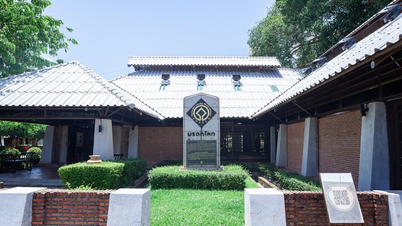

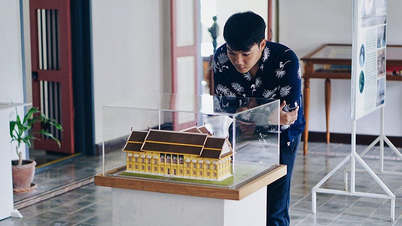
















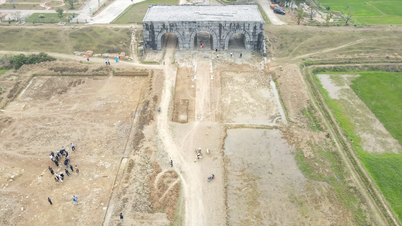


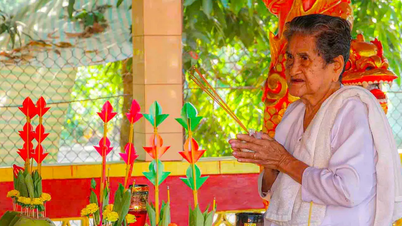

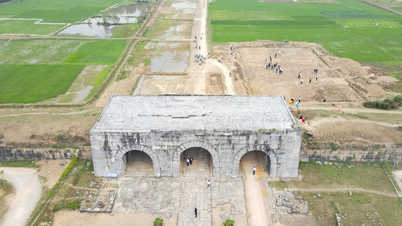





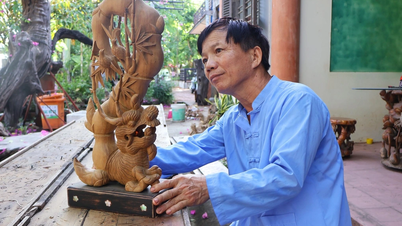



















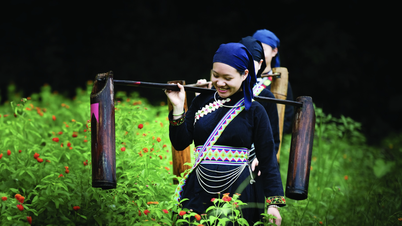







































Comment (0)